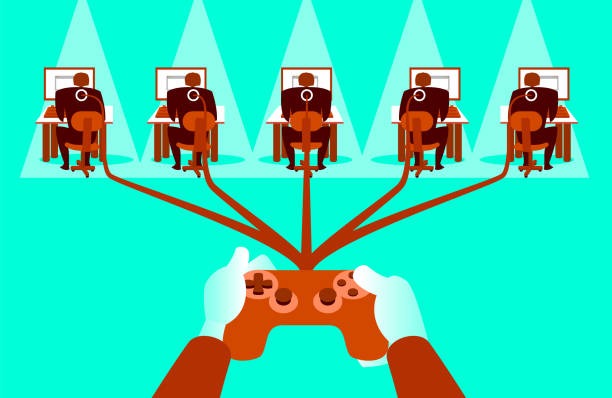Why do we find ourselves drawn back that certain online game, again and again? It could be a basic five-minute puzzle, or an hours-long multiplayer campaign. No matter how simple or complex the game, the answer is that online playing taps into deep psychological triggers that stimulate our brains and keep us engaged. Read on to find out more about the underlying mechanisms – be it the thrill of rewards or the pull of social interaction – that make it so hard for us to resist these digital experiences.
From levels to prizes: The dopamine hit of rewards and progress
Most online games offer structured rewards such as gaining experience points, unlocking exciting new content, or earning virtual currency. These tangible signs of progress light up the brain’s reward centres (that the ‘rush’ of satisfaction you feel when you get past a difficult level). It’s the exact same gratification we get from achieving real-world goals – but faster and more frequent (and available immediately through our smartphones).
Variable rewards: The slot machine effect
People love the thrill of not knowing what’s next. Games often use variable-ratio reinforcement schedules to offer rewards at unpredictable times. It’s the same mechanism that drives gambling – you keep coming back in search of that next win. The randomness builds suspense, so each moment of play feels like it could deliver a big payoff.
Teaming up: Virtual friends, real connections
Online gaming is no longer something you have to do on your own. With multiplayer platforms, you can collaborate, compete, and chat in real-time. This social dimension fosters a sense of belonging and camaraderie, offering positive feedback and emotional fulfilment beyond just the gameplay itself.
Fast fun and quick wins: The rise of instant games
Short, fast-paced games provide immediate satisfaction (perfect for today’s short attention spans). For example, popular slot games like those from Megaways often feature mechanics that maximise excitement in a short window – make them great for work breaks or commutes.
Stories and immersion: The narrative pull of online games
Throughout history, humans have striven to be part of something bigger than themselves. Online games that offer compelling narratives and rich world-building tap into this universal feeling. When you’re playing a game that offers emotional depth or chances to actually influence the story, you’re immersed more deeply into it and will want to come back to it repeatedly.
Winning matters: The pull of competition
There’s nothing like the thrill of climbing a leaderboard or completing a tricky level when gaming. Overcoming difficulties gives players a powerful sense of competence that keeps them coming back for more. The more challenging the gameplay, the greater the sense of mastery and accomplishment.
Healthy gaming: Setting boundaries
Gaming has many benefits, but it’s appeal means that it can also lead to compulsive use. Understanding the psychological triggers behind gaming can help you stay aware of your habits and set healthy boundaries such as timers or only playing games at pre-booked times in your schedule. Mindful gaming ensures the experience remains enjoyable, not overwhelming.
Inside the loop: What keeps us playing
Whether it’s the thrill of surprise rewards, the draw of community, or the satisfaction of levelling up, online games are designed to appeal to our instincts. And now that you understand what makes them so irresistible, you can enjoy them while staying mindful of how (and how often) you play.

